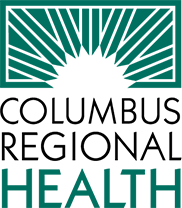Ready to Start a Family? Tips to Help You Conceive
You may think you already know the baby-making basics: Quit using birth control, have sex and in nine months you’ll be holding your bundle of joy. In reality, getting pregnant is a little more complex. To conceive more quickly, you want to first track your menstrual cycle. Here is some help to get started.
Day 1: Your period begins.
Day 14: The average menstrual cycle is 28 days, which means ovulation typically occurs in the middle of your cycle. Women can get pregnant only around the time of ovulation — when the ovary releases an egg. It’s tricky to know exactly when you ovulate, but there are a few signs:
- Changes in cervical fluid. Around ovulation it will have a wet “egg white” consistency.
- Cramping or pain on one side of your pelvis
- Breast tenderness
- Bloating
Days 9 through 15: This is the best time to conceive.
You have the greatest chance of becoming pregnant if sperm are present in the fallopian tube when you ovulate. Since sperm can live in the fallopian tube for three to five days and an egg can survive in the fallopian tube for only about 24 hours after ovulation, you want to have sex sometime in the five days before and up to one day after ovulation.
Related Articles
Expectant Mothers Should Plan Ahead With Prenatal Care
Related Services

CRH News
-
Final Two CRH Practices Move to NexusPark
Apr 18, 2024, 12:36 PM by DeClue, A.CRH at NexusPark officially opened in late January, and more than 15 provider practices and services have relocated to the space in the first quarter of 2024.Full story -
Wound Center Receives National Awards
Apr 3, 2024, 15:21 PM by DeClue, A.The Wound Center achieved outstanding clinical outcomes for twelve consecutive months, including a patient satisfaction rate higher than 92 percentFull story -
CRH conducting independent public health survey
Mar 26, 2024, 12:41 PM by DeClue, A.Columbus Regional Health is conducting a Health Status Survey by telephone and online from March through May.Full story -
Columbus Regional Health offers new online health portal for expectant parents
Mar 25, 2024, 14:21 PM by DeClue, A.With CRH’s new My Pregnancy Journey, patients can use their computers or mobile devices to review digital prenatal education from a trusted source and track important decisions and tasks that need to happen at specific pregnancy milestones.Full story -
Additional Medical Practices Move to NexusPark
Mar 25, 2024, 11:24 AM by DeClue, A.More practices and services relocate to NexusPark facility.Full story -
Eclipse office hours for CRH-affiliated services
Mar 21, 2024, 14:01 PM by Laker, J.Office hours for CRH-affiliated practices and service lines for the April 8, 2024, Total Solar Eclipse.Full story

